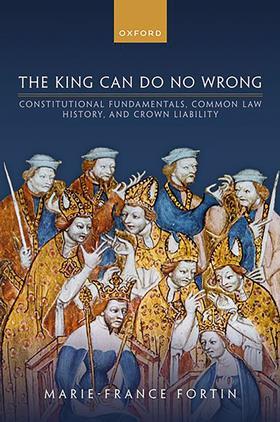The King Can Do No Wrong: Constitutional Fundamentals, Common Law History, and Crown Liability
Marie-France Fortin
£110, Oxford University Press
★★★✩✩
More than a few citizens, even if not otherwise inclined to republicanism, decry the fact that Charles III cannot be prosecuted in his own courts. Nor can he be sued in a civil action, albeit a wronged citizen might have a chance with the antiquated Petition of Right. He cannot even be compelled to attend the trial of another as a witness. In the words of Sir Edward Coke (pictured above) at the outset of the 17th century, ‘the King can do no wrong’. (Which, ironically, does not stop him from using the courts himself.)
Marie-France Fortin, a French-Canadian academic, has written a study of the origins and development of Coke’s phrase, based on her doctoral thesis. She traverses events in the centuries that followed, including the infamous failure of Charles I to persuade his opponents of his infallibility. The 17th-century turmoil redrew the lines between the Crown and parliament, but the phrase ‘the King can do no wrong’ was not made wholly redundant.

Matters were complicated in the 20th century by the substantial growth of the state. New branches of government often acted in the name of the Crown. While the monarch remained immune from suit, ministers, government departments and civil servants usually did not. Inevitably, the piecemeal way in which the law evolved produced uncertainty.
Fortin covers both the history and the present law in detail. She also takes in other jurisdictions including Ireland, Australia and the US. As with many books adapted from theses, her prose can be somewhat leaden in places, though she does not deserve her self-deprecation in the preface, where she laments not being able to write English as well as Samuel Beckett wrote French. The book’s production is impressive, including a fetching dust jacket, though the font size is small, which has enabled the work to be confined to a deceptively short 300 pages.
The principal audience will be academic public lawyers and legal historians, though practitioners faced with constitutional cases raising unusual points would also be assisted by the rigorous research and analysis this book offers.
Is it still right that the King can do no wrong? The political reality is that a criminal King would likely be ousted, and perhaps the entire monarchy with him, but is that not itself a reason for abolishing his immunity?
James Wilson FRHistS is an independent legal author. His most recent book is Lord Denning: Life, Law and Legacy (Wildy, Simmonds & Hill, 2023)































